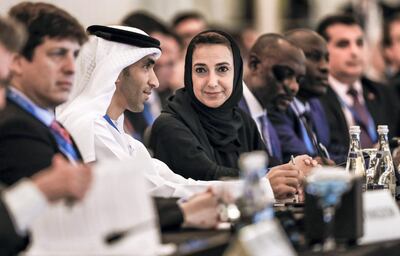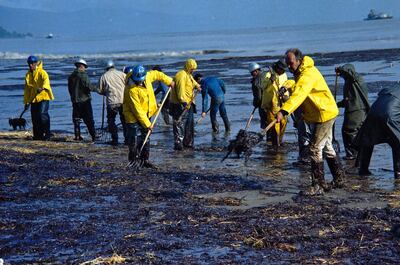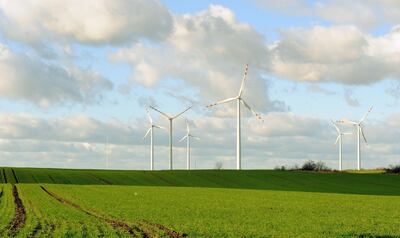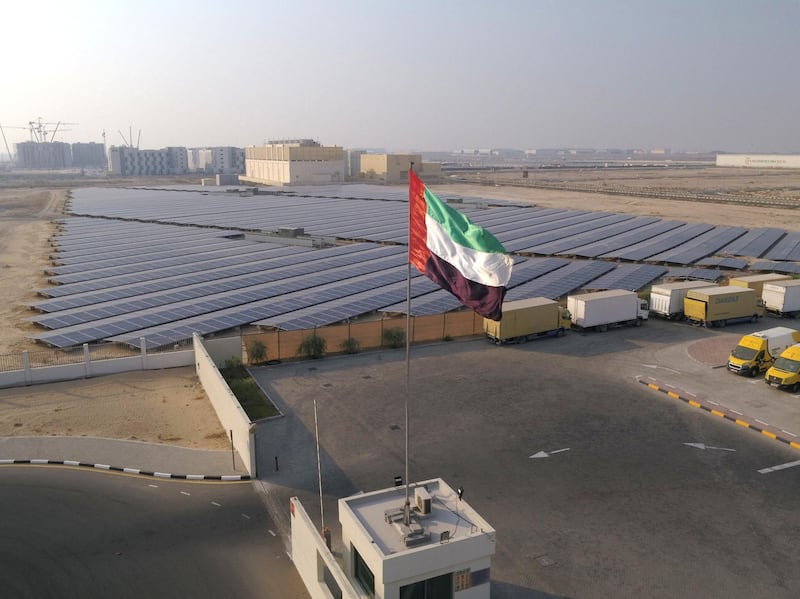Whatever our new normal looks like, it will be defined by the actions that we take now, during the more difficult moments of the coronavirus pandemic, which has turned our world upside down. Amid the sea of dark and gloomy clouds that have gathered in the skies of 2020, there are some strong silver linings – unexpected ripples of hope that we cannot afford to let evaporate with the eventual passing of the Covid-19 storm.
Perhaps the most striking silver lining is the sudden burst of environmental health and radiance that Earth is enjoying. With traditional energy consumption plummeting by as much as six per cent across the globe since the start of the year, carbon emissions have fallen at a similar rate. The Himalayas are visible from certain parts of India for the first time in 30 years. There is a sudden profusion of marine life swimming in the waters of Sardinia. And in the UAE, rays have been seen meandering through the Dubai Canal and Dubai Marina.
Mother Nature is breathing again.
But with this momentary resuscitation, we must heed a critical warning from recent history. In the immediate aftermath of the global financial crisis in 2008/09, carbon emissions dropped by 1.4 per cent, according to statistics published by the Global Carbon Project in 2011. But this respite was short-lived. As the economy began to pick back up, industry went full throttle to regain what revenue had been lost. Subsequently, carbon emissions rocketed by up to 5.9 per cent, totally eclipsing any environmental recovery our planet had just experienced.
The rush to return to “business as usual” led to a decade of unprecedented greenhouse gas emissions and the hottest 10 years in human history, and the 2010s will be remembered as the years that sent us hurtling towards a potentially catastrophic 3.2 degrees Celsius of global warming.

We cannot afford to repeat the same mistakes. This time, we must get it right. We cannot revert to the same paradigm that stemmed from an unsustainable economic model which valued unmitigated growth at the expense of all else and focused on a toxic, ecologically disastrous pursuit of short-term rewards. The old attitude of getting the economy back on track at the expense of the planet must fundamentally change.
The solution to this problem was the topic of discussion at the first Renewables Talks session, co-hosted by the International Renewable Energy Agency (Irena) and the UAE Mission to Irena from Abu Dhabi last week. More than 100 members dialled in for the webinar, and they came to a consensus: the world needs to harness renewable energy to energise a sustainable economic recovery.
How we do that is the next important step. As Irena's first Global Renewables Outlook (GRO) report makes clear in its prediction of energy scenarios up to 2050, the worldwide recovery from the Covid-19 disruption can only be led by the global energy transition if we collaborate to integrate renewable energy stimulus packages into national budgets across the planet. As an interconnected international community, Irena is well-placed to influence this imperative call to action.

Indeed, the GRO report suggests that renewable solutions could add $98 trillion to the global economy in 30 years’ time, promising more jobs, greater economic growth, cleaner living conditions and significantly improved welfare in a sustainable, low-carbon climate that lays the foundations for stable, long-term economic development.
The scenarios outlined in the Energy Transformation 2050 report, published in April 2020, build from the position we have arrived at since Irena’s inception in 2010. In the past decade, the world has invested $3tn in renewables, which has more than doubled installed renewable energy capacity. Renewables today account for around a quarter of global power generation and represent a third of global power capacity. And the costs of solar and wind power have fallen significantly, meaning they are now often the cheapest sources of new energy capacity.

With this amount of wind in its sails, the global energy transformation cannot simply be blown off course by volatile oil prices or Covid-19 on our path towards the decarbonisation of our societies and economies.
That is not to say that neither of these factors will affect our journey to a greener future. Of course they will. The havoc caused to global supply chains will have a direct bearing on the renewables industry, with parts, materials and supplies for projects being shipped from all over the world. The severity of its impact remains to be seen.
But even in the worst of times, we cannot lose sight of our goals. Seeing through the global energy transition in time to avoid cataclysmic climate change requires intensified international co-operation, a value that lies at the beating heart of Irena and its member states. Our aim is to enable institutions to adopt a variety of ambitious policies that strengthen public resolve and ensure no one is left behind as we build a brighter future for all.
Dr Nawal Al Hosany is the UAE’s permanent representative to Irena






